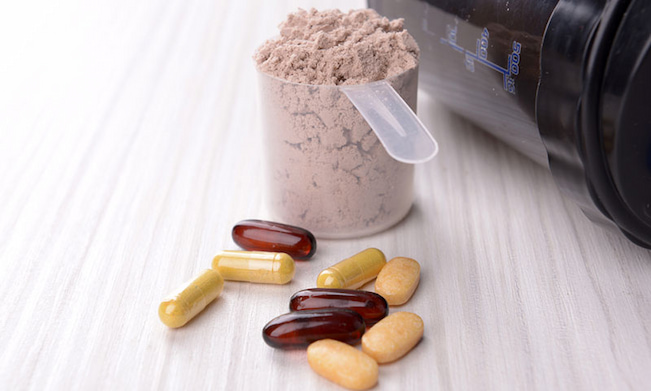Endurance sports like marathons, cycling races, and long-distance swims test the limits of human physical and mental capacity. Athletes in these disciplines dedicate themselves to gruelling training regimens, pushing their bodies to cover vast distances and endure constant exertion. These relentless pursuits come with a unique set of challenges. From muscle fatigue and dehydration to depleted energy stores and mental struggle, endurance athletes consistently battle to maintain peak performance.
In this quest to conquer these challenges and optimise their capabilities, many athletes turn to supplements. These specialised products strive to provide extra nutrients, electrolytes, and other targeted ingredients that can enhance performance, speed up recovery, and support overall well-being.
Understanding Sports Supplements

Before diving into the specific supplements that can benefit endurance athletes, you need to understand what effective and easily digestible sports supplements are and how they differ from other dietary components. These products are concentrated sources of nutrients, such as vitamins, minerals, amino acids, or herbal extracts, intended to supplement a healthy diet for athletes. They come in various forms like powders, capsules, bars, and gels, and are specifically formulated to address the unique needs of active individuals.
Which Supplement Is Best for Endurance?
Carbohydrates (Carbs)
Carbs serve as the main source of energy for individuals engaging in endurance activities. During exercise, your body readily utilises carbohydrates stored in your muscles (glycogen) for energy. However, glycogen stores are finite, and depletion can lead to fatigue and decreased performance.
Carb Supplements
To maintain optimal energy levels throughout an endurance event, carb supplements become valuable tools. They come in various forms like gels, powders, and chews. Gels offer a concentrated dose of carbohydrates for a quick energy boost, ideal for during exercise.
Powders, often mixed with water to create a drink, provide a sustained release of energy and are suitable for pre-workout or mid-exercise consumption. Chews offer a convenient and portable source of carbs, perfect for maintaining energy levels during longer training sessions or races.
Electrolytes
Electrolytes are minerals like sodium, potassium, and chloride that play a key role in regulating fluid balance and muscle function. During exercise, sweat not only loses water but also electrolytes. This imbalance can lead to dehydration, muscle cramps, and fatigue.
Electrolyte Supplements
While a balanced diet can usually replenish electrolytes lost through moderate exercise, endurance athletes often lose significant amounts through sweat. Electrolyte supplements are beneficial in retaining fluids and increasing absorption, thus aiding in maintaining proper hydration levels. They can also prevent muscle cramps by ensuring proper nerve and muscle function, and even boost performance by minimising fatigue associated with electrolyte imbalances.
Electrolyte supplements are particularly beneficial in hot or humid conditions where sweat loss is accelerated. They come in various forms like tablets, powders, or even sports drinks specifically formulated with electrolytes.
Protein
Protein is essential for muscle repair and growth, crucial for training and recovery in endurance athletes. Exercise creates microscopic tears in muscle fibres, and protein provides the building blocks for muscle repair and adaptation. The recommended daily protein intake for endurance athletes is generally higher than for the average person, ranging from 1.2-2 grams of protein per kilogram of body weight.
Protein Supplements
While a balanced diet rich in protein sources like meat, fish, or dairy can often meet these needs, protein supplements offer a convenient way to boost your daily intake. Here are some types to consider: whey protein (a fast-absorbing protein ideal for post-workout recovery), casein protein (a slower-digesting protein that provides sustained muscle support throughout the day), and soy protein (a plant-based protein option suitable for vegans and vegetarians).
Selecting the appropriate protein supplement largely relies on your specific requirements and personal choices. Consider factors like protein source, taste, and presence of additional ingredients like creatine or BCAAs (branched-chain amino acids).
Caffeine
Caffeine is a well-known stimulant that can offer several benefits for endurance athletes: improved alertness by combating fatigue and promoting focus during exercise, enhanced performance through improved endurance and delaying the onset of fatigue, and increased fat burning as caffeine may help your body utilise fat stores for energy, sparing glycogen reserves.
Optimising Your Endurance Journey

Fitness supplements are a beneficial resource for endurance athletes to have in their arsenal. From maintaining energy levels with carb gels to preventing muscle cramps with electrolytes and promoting muscle repair with protein, these supplements can offer targeted support within your overall sports nutrition plan.
However, you should keep in mind that while supplements can be beneficial, they are not a cure-all solution. A balanced diet rich in whole foods should always be the foundation of an athlete’s nutrition plan. Consulting a healthcare professional or registered dietitian is highly recommended before incorporating new supplements into your routine. They can assess your needs, recommend appropriate dosages, and ensure that when you buy sports supplements you don’t interact with any medications you’re taking.
When used strategically alongside a healthy diet and a well-structured training plan, fitness supplements can be a valuable tool for endurance athletes. They can help you push your limits, optimise performance, and recover faster, propelling you further on your athletic journey.
























